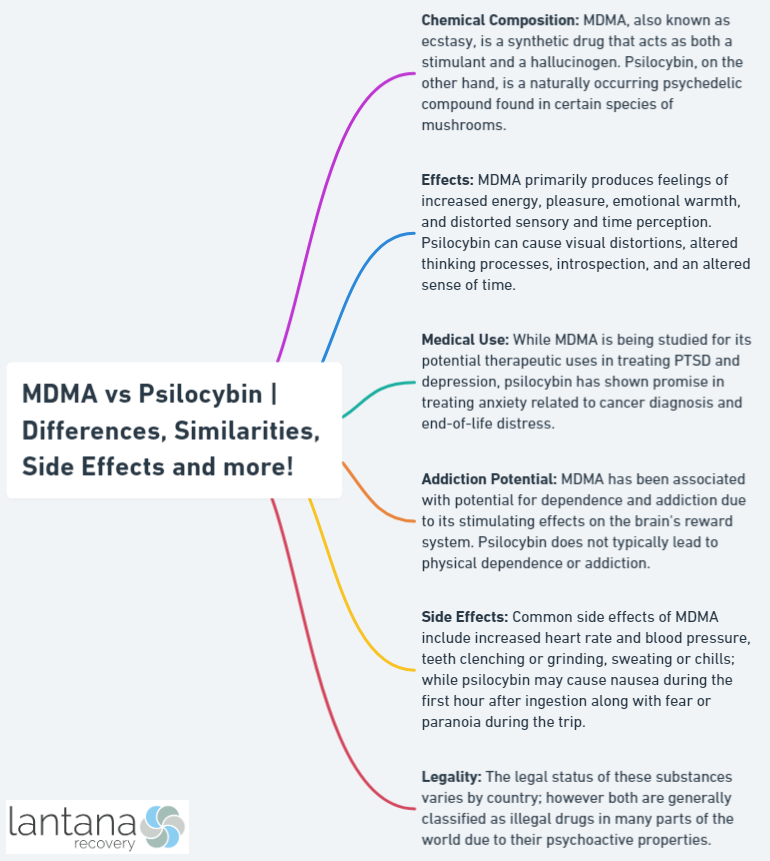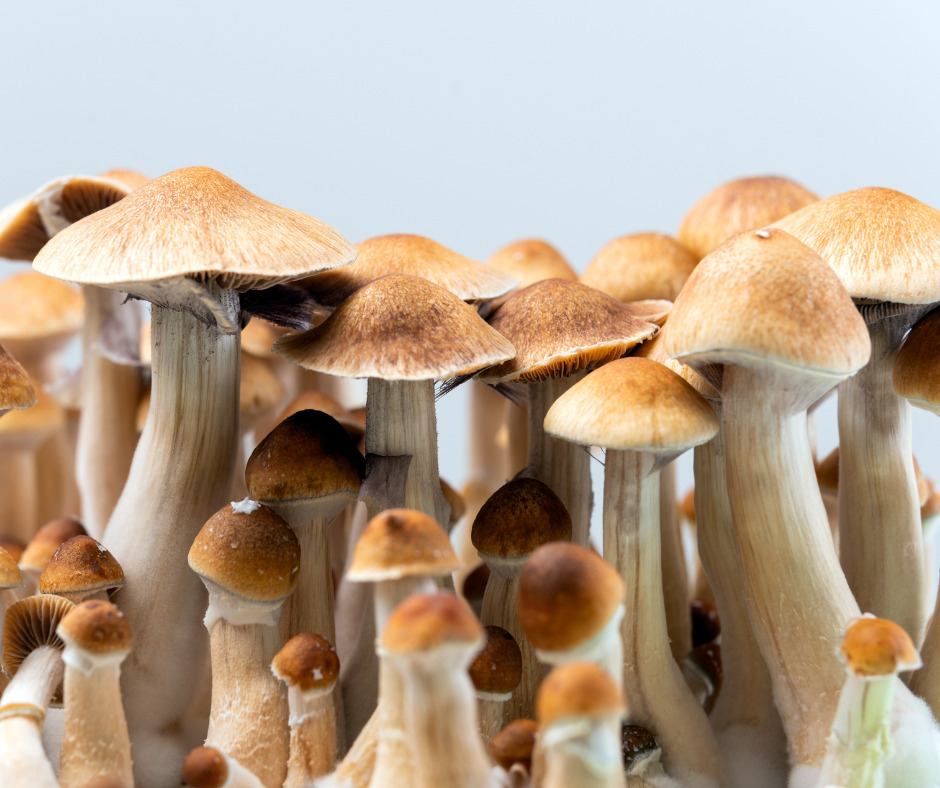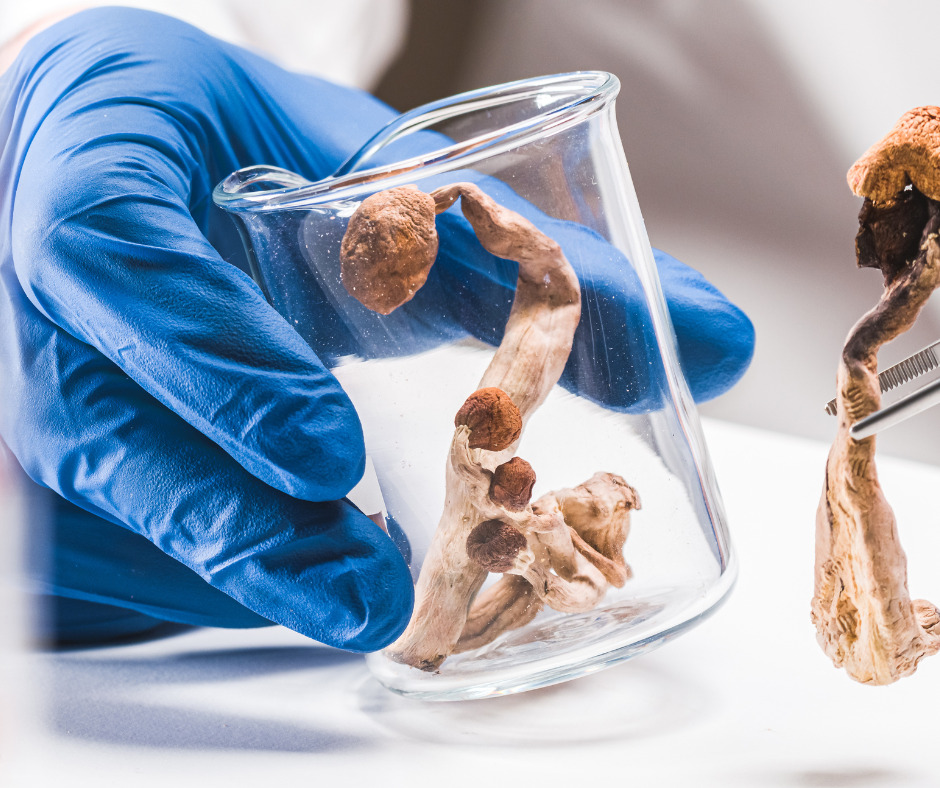MDMA (3,4-methylenedioxymethamphetamine) and Psilocybin (also known as “magic mushrooms”) are two popular substances used for recreational and therapeutic purposes. While both substances can induce altered states of consciousness and have been known to help with various mental health issues, there are also significant differences between them in terms of their effects, side effects, and overall experience.
In this article, we will explore the differences and similarities between MDMA and Psilocybin, including their mechanisms of action, side effects, and the reasons why people use them. Whether you’re a seasoned user or simply curious, this article will provide valuable insights into the world of these two popular substances.
What is MDMA?
MDMA (3,4-methylenedioxymethamphetamine) is a synthetic, psychoactive drug that has stimulant and hallucinogenic properties. It is often referred to as “ecstasy” and is commonly used recreationally as a party drug.
MDMA acts on the brain by increasing the release of neurotransmitters such as serotonin, dopamine, and norepinephrine. This can result in feelings of euphoria, increased energy, enhanced sensory perception, and a general intensification of emotions.
Despite its popularity, MDMA can also have a number of negative side effects, including anxiety, agitation, paranoia, and dehydration, among others. It is also illegal in many countries, including the United States, where it is classified as a Schedule I controlled substance.
Chemical Composition of MDMA
MDMA is chemically composed of a combination of atoms that includes carbon, hydrogen, oxygen, and nitrogen. The specific molecular formula of MDMA is C11H15NO2, and it belongs to the class of compounds known as phenethylamines.
What is Psilocybin?
Psilocybin is a naturally occurring psychoactive substance that is found in certain species of mushrooms, commonly known as “magic mushrooms.” It is responsible for the hallucinogenic effects that people experience when they consume these mushrooms.
When consumed, psilocybin is metabolized into psilocin, which acts on serotonin receptors in the brain, leading to alterations in perception, mood, and thought. This can result in a range of effects, including changes in visual and auditory perception, increased empathy and introspection, and profound spiritual experiences.
While psilocybin has been used for thousands of years in traditional spiritual and medicinal practices, its safety and efficacy as a therapeutic tool are still being researched. Like MDMA, psilocybin is illegal in many countries, including the United States, where it is classified as a Schedule I controlled substance.

Chemical Composition of Psilocybin
The chemical composition of psilocybin consists of a molecule with the chemical formula C12H17N2O4P. It is classified as an alkaloid and is structurally similar to serotonin, a neurotransmitter in the brain.
MDMA vs. Psilocybin: Fact Sheet
|
MDMA |
Psilocybin |
|
| Generic Name | Molly, Ecstasy | Magic Mushrooms |
| Drug Type | Stimulant | Psychedelic |
| Active Ingredients | 3,4-methylenedioxy-methamphetamine | Psilocin (C12H16N2O) |
| Used as treatment for: | None | None but in studies for depression and PTSD |
| Available Form(s) | Pills | Dried Mushrooms Tablets |
| Is it a controlled substance? | Yes, Schedule I | Yes, Schedule I |
| Legal Status | Illegal | Illegal |
| Risk of Withdrawal Effects | Yes | Yes |
| Risk of Addiction | Yes, very low | Yes, very low |
Psilocybin Dosage and Side Effects:
Psilocybin is a naturally occurring compound found in certain species of mushrooms, and has been used for centuries for its psychoactive properties. Dosage of psilocybin varies depending on the desired effect, but generally ranges from 10-30 milligrams for a mild experience, and up to several grams for a more intense experience.
It is important to note that due to the unpredictable nature of psilocybin, dosages can result in varying effects even in the same individual. Adverse effects of psilocybin use can include nausea, vomiting, anxiety, and paranoia.
In rare cases, users may experience prolonged and intense episodes of confusion, fear, or delusions. It is also important to note that there is a risk of developing tolerance to psilocybin, which can result in a diminishing effect with repeated use.
It is recommended that individuals who wish to experiment with psilocybin do so with caution, under the guidance of an expert, and with a clear understanding of the potential risks involved.
MDMA Dosage and Side Effects:
MDMA, commonly referred to as ecstasy, is a synthetic compound known for its psychoactive properties. The recommended dosage of MDMA varies, but typically ranges from 50-150 milligrams.
The effects of the drug can be influenced by a number of factors, including body weight, tolerance, and individual sensitivity. Adverse effects of MDMA use can include increased heart rate, dehydration, anxiety, and paranoia.
In rare cases, individuals may experience more severe symptoms such as serotonin syndrome, which can result in muscle rigidity, fever, and seizures. It is important to be mindful of the potential dangers associated with MDMA use, and to seek medical attention in case of any adverse reactions.
Psilocybin vs. MDMA: Can You Withdrawal for Either?
Withdrawal from psilocybin and MDMA can occur, although the symptoms and severity can vary depending on the individual and frequency of use.
In the case of psilocybin, withdrawal symptoms are generally mild and may include anxiety, irritability, and decreased appetite. However, since psilocybin is not considered to cause addiction and withdrawal symptoms are usually not intense or long-lasting.
With MDMA, withdrawal can result in more pronounced symptoms such as depression, fatigue, and trouble sleeping. These symptoms can last for several days to several weeks, depending on the individual and the severity of their use.
It is important to note that repeated and heavy use of MDMA can increase the risk of developing tolerance and dependence, and can increase the severity of withdrawal symptoms.
It is recommended that individuals who experience withdrawal symptoms after using psilocybin or MDMA seek professional help and support, as this can help alleviate symptoms and prevent further drug use.
MDMA vs Psilocybin: Prevalence in the United States

According to the National Survey on Drug Use and Health (NSDUH), in 2019, approximately 14.3 million people in the United States aged 12 and older reported past year use of hallucinogens, which includes psilocybin. Additionally, in 2019, it was estimated that approximately 11.8 million people in the United States aged 12 and older reported past year use of ecstasy, which is a commonly used form of MDMA.
It is also worth noting that the use of psilocybin and MDMA has been on the rise in recent years. For example, data from NSDUH shows that from 2015 to 2019, past year use of psilocybin increased by approximately 3.2 million people, while past year use of ecstasy increased by approximately 2 million people.
It is important to note that despite the prevalence of these drugs, both psilocybin and MDMA remain illegal under federal law in the United States. The use, sale, and distribution of these substances can result in serious legal consequences.
Bottom Line: MDMA versus Psilocybin

In conclusion, both MDMA and psilocybin are powerful psychoactive substances that can result in profound experiences and alterations in perception and mood. While they share some similarities, such as the potential for inducing euphoria, they also have significant differences, including the severity of their side effects, the nature of their experiences, and their legal status.
It is important to be aware of the risks and potential consequences of using these drugs, and to seek professional guidance if considering experimentation. Understanding the differences and similarities between these substances can help individuals make informed decisions about their use and can promote safer, more responsible drug use.
FAQs on Psilocybin and MDMA
Psilocybin vs MDMA: Which is more addictive?
MDMA has been shown to be more addictive, as repeated and heavy use can increase the risk of developing tolerance and dependence. There have been few reports of physical dependence on psilocybin, and withdrawal symptoms tend to be mild and short-lived.
Is it possible to overdose on MDMA?
Yes, it is possible to overdose on MDMA. An overdose of MDMA can result in a number of serious and potentially life-threatening symptoms, including high body temperature (hyperthermia), dehydration, electrolyte imbalances, and organ failure.
Moreover, these symptoms also appear when MDMA is consumed in combination with other psychoactives like Cannabis due to the opposing effects on the brain.
How effective is psilocybin in treating depression?
Psilocybin has shown promise as a treatment for depression in clinical trials and studies. Some studies have found that a single dose of psilocybin can lead to significant and long-lasting reductions in depression symptoms in individuals with treatment-resistant depression.





